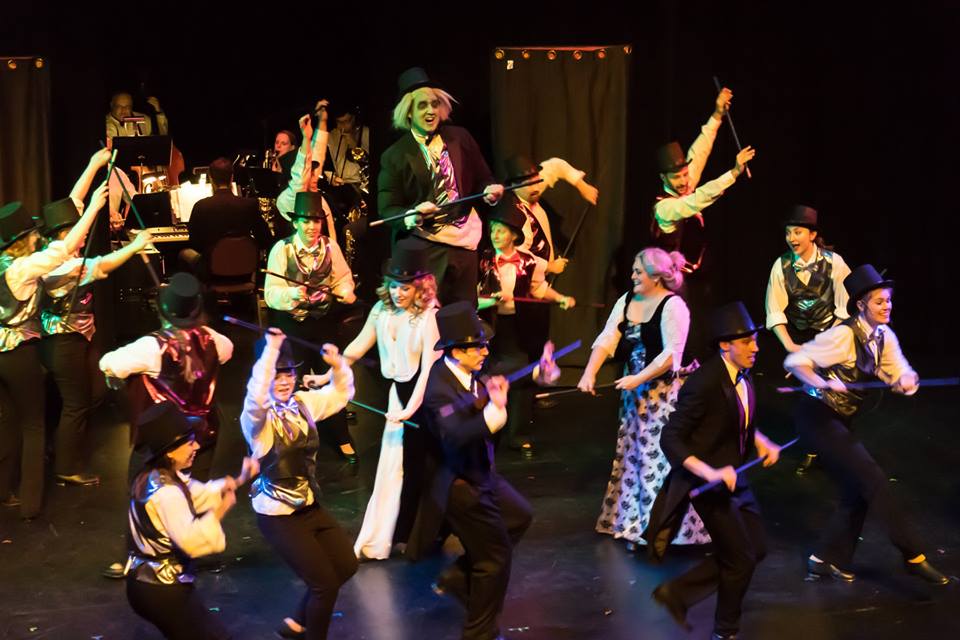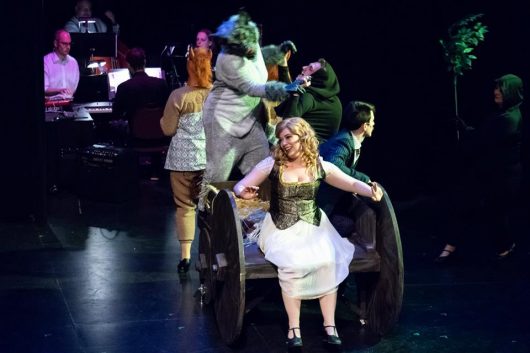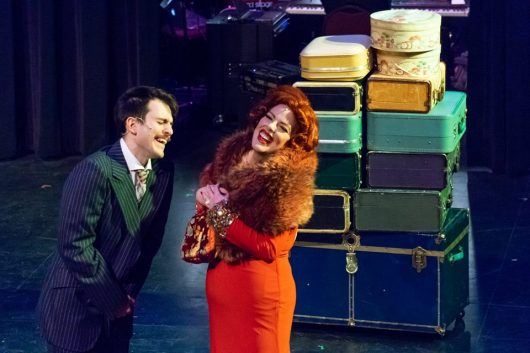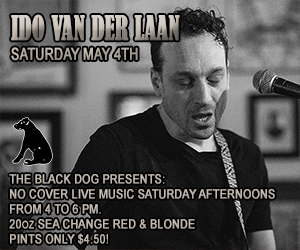Young Frankenstein: It’s alive! It’s alive!
Posted on May 4, 2018 By Colin MacLean Entertainment, Front Slider, news, Theatre
 Except for the venerable Walterdale Theatre, ELOPE Musical Theatre may be the oldest amateur theatrical production entity in Edmonton. For 35 years the company has been scouring the community for talent, holding auditions and mounting productions of Broadway musicals. In the past few years they have featured such shows as Guys and Dolls, Sweeney Todd and City of Angels.
Except for the venerable Walterdale Theatre, ELOPE Musical Theatre may be the oldest amateur theatrical production entity in Edmonton. For 35 years the company has been scouring the community for talent, holding auditions and mounting productions of Broadway musicals. In the past few years they have featured such shows as Guys and Dolls, Sweeney Todd and City of Angels.
Their latest from ELOPE (Ensemble for Lyrical Operetta Productions Edmonton) is The New Mel Brooks Musical Young Frankenstein at La Cite Francophone until May 12 – a relentlessly entertaining evening of gags, outrageous characters and rude attacks on political correctness and good taste. It’s all presented by a large company under director Martin Galba, who really “gets” it.
With music, lyrics and book (with Thomas Meehan) written by Mel Brooks himself, the monster musical had a long gestation that can be traced back to James Whale’s classic 1931 horror film Frankenstein. Brooks first launched the vehicle as a film parody in 1974, and then, adding music, remade it as a Broadway musical in 2007.
 For any who may have missed the original Warner Bros. oeuvre (the internet tells us that over 1000 movies have been made of Mary Shelley’s original tale), here is Brooks’ take: Frederick Frankenstein (now pronouncing it “Fronk-en-steen”) is an American professor of neurology. He’s no fan of his mad-scientist grandfather’s experiment in re-animating the dead, but is lured back to Transylvania to sell the family’s crumbling Gothic castle. There, he is captivated by the charged sexuality of his hot new assistant, Inga, who uses her hearty yodel as foreplay. He finds his granddad’s laboratory (where the old re-animator himself once famously screamed the fateful words, “It’s alive. It’s alive.”) – and it’s still useable. Even Igor (now known as Eye-gore) is still around. Brooks also adds the really scary Frau Blucher, whose very voice sets the horses to whinnying in fear.
For any who may have missed the original Warner Bros. oeuvre (the internet tells us that over 1000 movies have been made of Mary Shelley’s original tale), here is Brooks’ take: Frederick Frankenstein (now pronouncing it “Fronk-en-steen”) is an American professor of neurology. He’s no fan of his mad-scientist grandfather’s experiment in re-animating the dead, but is lured back to Transylvania to sell the family’s crumbling Gothic castle. There, he is captivated by the charged sexuality of his hot new assistant, Inga, who uses her hearty yodel as foreplay. He finds his granddad’s laboratory (where the old re-animator himself once famously screamed the fateful words, “It’s alive. It’s alive.”) – and it’s still useable. Even Igor (now known as Eye-gore) is still around. Brooks also adds the really scary Frau Blucher, whose very voice sets the horses to whinnying in fear.
Of course, the good Dr. Fronkensteen can’t help himself and starts assembling pieces of human bodies into a new monster.
The creature turns out to be less frightening and more of a good ol’ boy. The high point of the show, as it was for the movie, is when the monster joins his maker in a spirited version of Gershwin’s Puttin’ on the Ritz – leading to a tap dance routine by almost the entire cast. This is the big production number of the show and is staged with verve by director Galba (and with some impressive tapping – choreographed by Barbara Vargas).
 Frank Keller is a find as the professor who comes to Transylvania and finds love – and body parts. He sings, he dances and turns in a solid comic performance. Kathleen Sera (Inga) ably copes with a somewhat one-dimensional role and shines in her second act solo, Listen to Your Heart. Thomas Taylor’s Igor won’t make you forget the movie’s Marty Feldman, but he’s a talented fellow and makes his own way. Stephanie Sartore (Elizabeth) exhibits a big show-business voice (and considerable superstructure) as Frankenstein’s hoity-toity Park Avenue fiancee who eventually finds great satisfaction with the Monster’s own … ah, high-rise superstructure. She celebrates her new lover’s prowess with a lovely delivery of the pseudo Lloyd Webber ballad, Deep Love.
Frank Keller is a find as the professor who comes to Transylvania and finds love – and body parts. He sings, he dances and turns in a solid comic performance. Kathleen Sera (Inga) ably copes with a somewhat one-dimensional role and shines in her second act solo, Listen to Your Heart. Thomas Taylor’s Igor won’t make you forget the movie’s Marty Feldman, but he’s a talented fellow and makes his own way. Stephanie Sartore (Elizabeth) exhibits a big show-business voice (and considerable superstructure) as Frankenstein’s hoity-toity Park Avenue fiancee who eventually finds great satisfaction with the Monster’s own … ah, high-rise superstructure. She celebrates her new lover’s prowess with a lovely delivery of the pseudo Lloyd Webber ballad, Deep Love.
If the principals weren’t so good, the supporting players would run off with the show. The formidable Erin Forwick-Whalley plays Frau Blucher and burns up the stage with her steamy tribute to her late lover’s attributes in He Vas My Boyfriend. “He won the three legged race all by himself,” she sings. Todd Hauck is an entire cast all by himself playing a Dr. Strangelove kind of local cop, a blind hermit, a shoeshine boy, the village idiot Ziggy, and unleashing a downright burnished tenor as the original Dr. Victor Frankenstein.
Dustin Berube plays the monster who overcomes his lumbering size, green complexion and doubtful origins to become a likeable kind of lout – and wait ’till you catch all seven feet of him in those six-inch boots doing a tap dance.
The songs are a pastiche of stock musical forms and perfectly suited to the inspired nonsense on stage. Michael Clark’s orchestra is big and supportive.
This is an amateur production, but you don’t have to make accommodations for the performances (cast of 25). Galba’s production is smart, broad and very funny. All involved give it their old burlesque best and, with the help of the sturdy structure of the original material, provide an evening of gloriously libidinous entertainment.













